
Last Christmas I noticed a new buying trend in gardening. Mushroom kits were flying off the shelves for gift giving. There were even several under our family tree (presents for my daughters), and the new year brought dinner invitations with delicious mushroom-themed meals. So, I thought I would encourage my readers to consider these kits, not only for the simple joy of growing them but also for the practical reasons listed below.
Mushroom Varieties
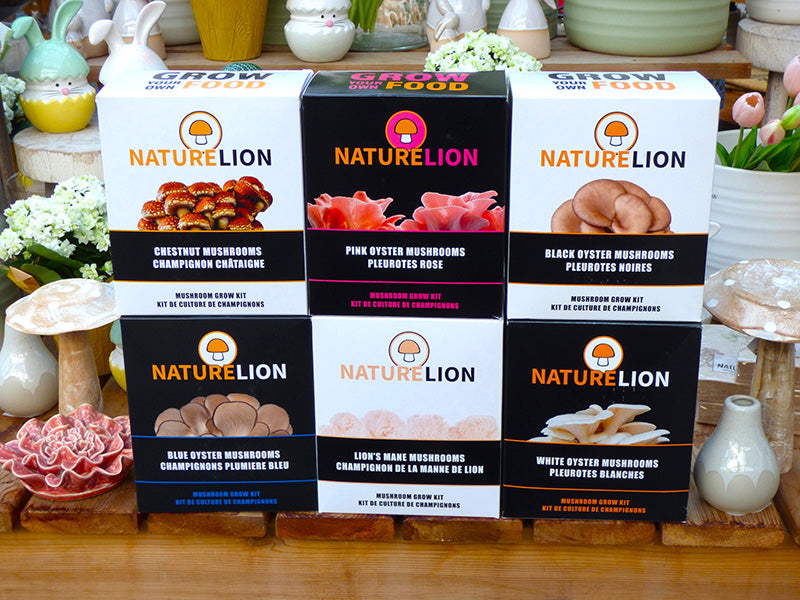
There are plenty of varieties to choose from. Admittedly, mushrooms are an acquired taste but when you have the choice of Pink Oyster, Black Oyster, Chestnut, White Oyster, Blue Oyster, or Lion’s Mane, you are bound to find a variety that suits your culinary palette.
Year-Round Growing
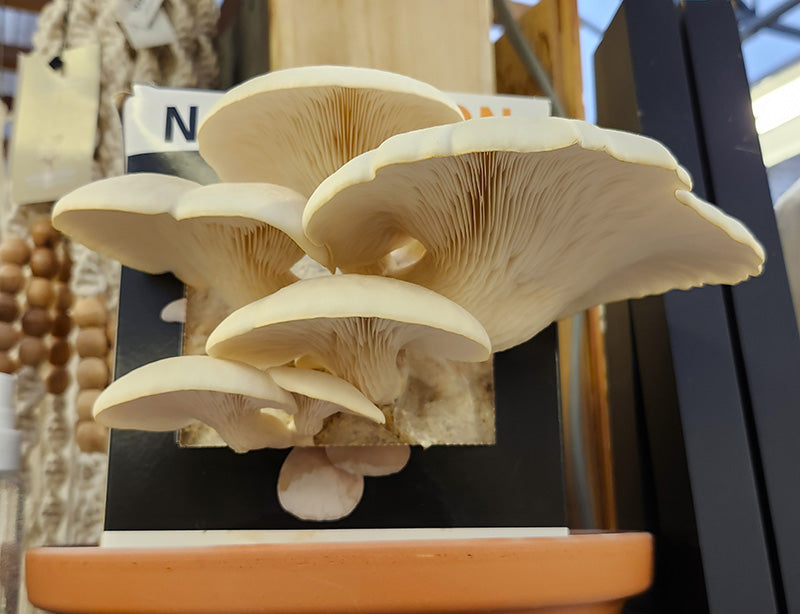
You can grow mushrooms indoors all year round. You don’t need a garden to be successful with a mushroom kit, all that’s required is some ambient or indirect sunlight (or comparable artificial light), adequate moisture (achieved through spraying twice a day for the first 2-3 weeks, then once a day when the baby mushrooms emerge), reasonable humidity (humidity tent may be required for Lion’s Mane), some air circulation, and a temperature of 65-75F – all of which are easily attainable.
Better Than Foraging
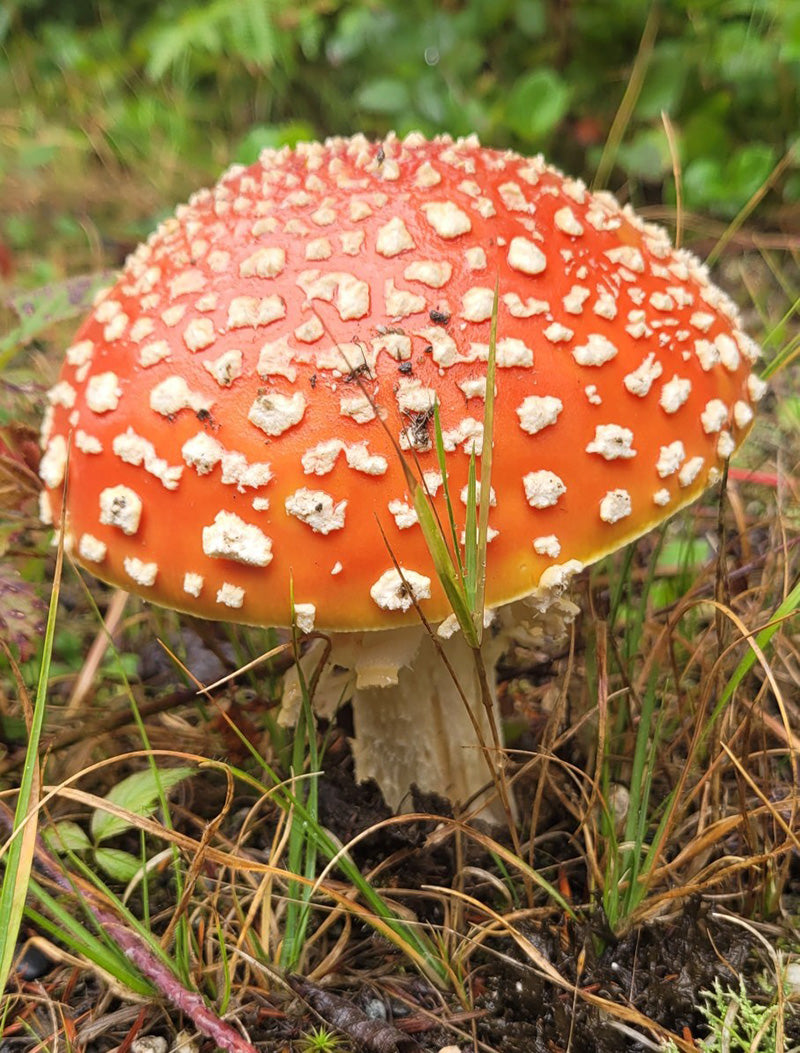
(Poisonous Amanita muscaria Mushroom | 📸 Nicole Lascelle)
Both my older daughters forage for mushrooms but only after taking an identification course where they were encouraged to just harvest a few common, easy-to-identify varieties. They took that advice to heart and tend to pick a half dozen mushrooms such as Oyster, Boletus, Chanterelle, Morels, Hedgehog, and Porcini of the 3400 species native to British Columbia (of which only 40-50 are edible). When growing a kit, you are assured of harvesting the edible mushrooms featured instead of mistakenly foraging a beautiful but decidedly deadly mushroom, such as the poisonous Amanita (Amanita muscaria) shown in the image above.
All Organic
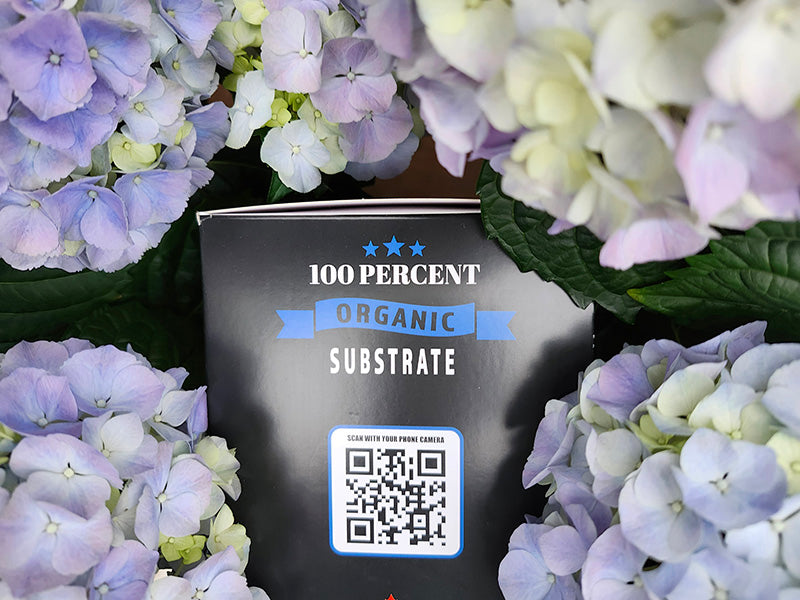
They are organic. Nature Lion kits are based on simple organic products such as mushroom spawn and a wheat bran / hardwood sawdust substrate for Lion’s Mane or soybean hulls / hardwood sawdust for Oyster and Chestnut mushrooms, with the sawdust providing an excellent rooting structure for the mycelium and the wheat bran / soybean hulls raising the nutrient value for increased growth.
Reap Multiple Harvests
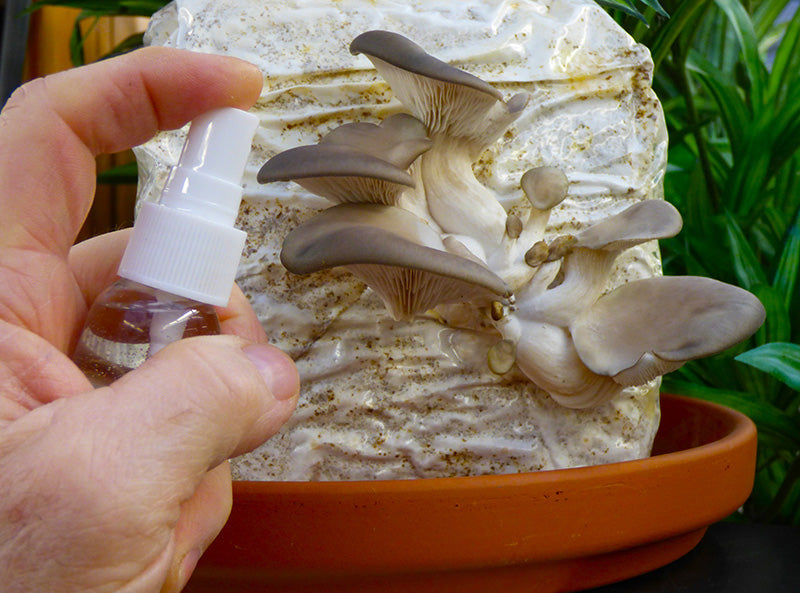
Mushroom kits aren’t just one-time wonders but with a little care can be induced to produce from two to four additional, albeit smaller crops. You can achieve this by giving your substrate block a 7-day rest period followed by submerging in water for 12-24 hours and then properly draining any excess. After that, you are ready for another crop.
Cool Science Fair Project
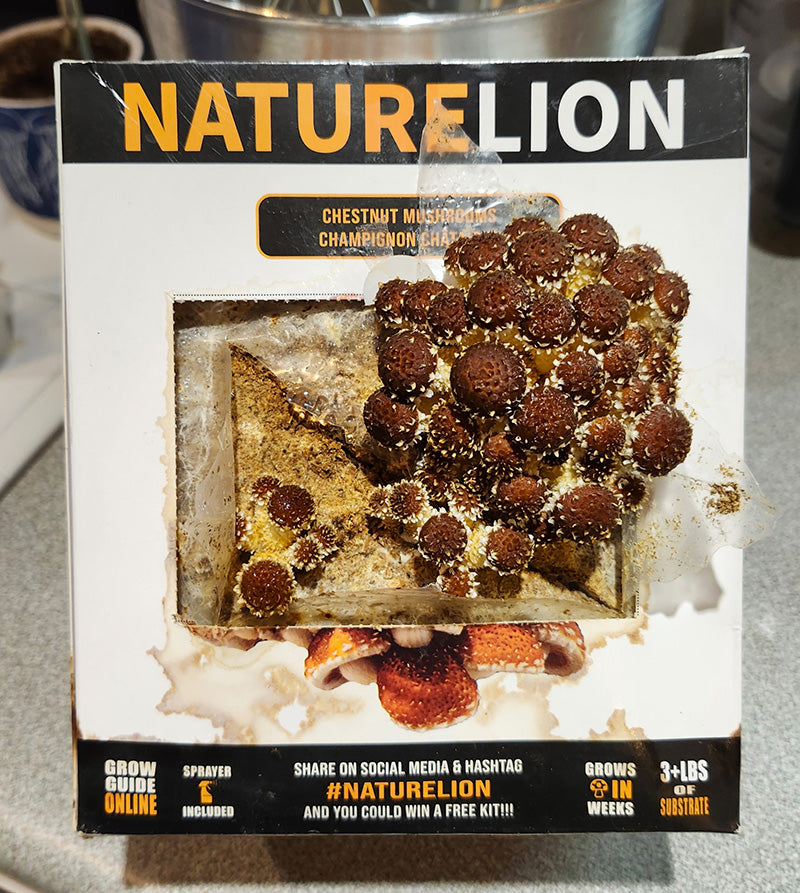
Any parent of school-age children has done their fair share of science fair projects for their kids, whether it’s a paper mâché volcano or those foam balls and coat hangers to create a solar system. Wouldn’t it be nice to be rewarded for all that hard work by suggesting a science fair project that benefits both of you. Having your children grow their own mushroom kit for their Science of Fungi project will not only educate them on fungal species, reproduction (have them make their own spore print [see image below]), and mycelium, but they are also inadvertently growing the mushrooms for pasta night.

(Spore Print | 📸 Broussole folle - Wikipedia)
Guaranteed Growth
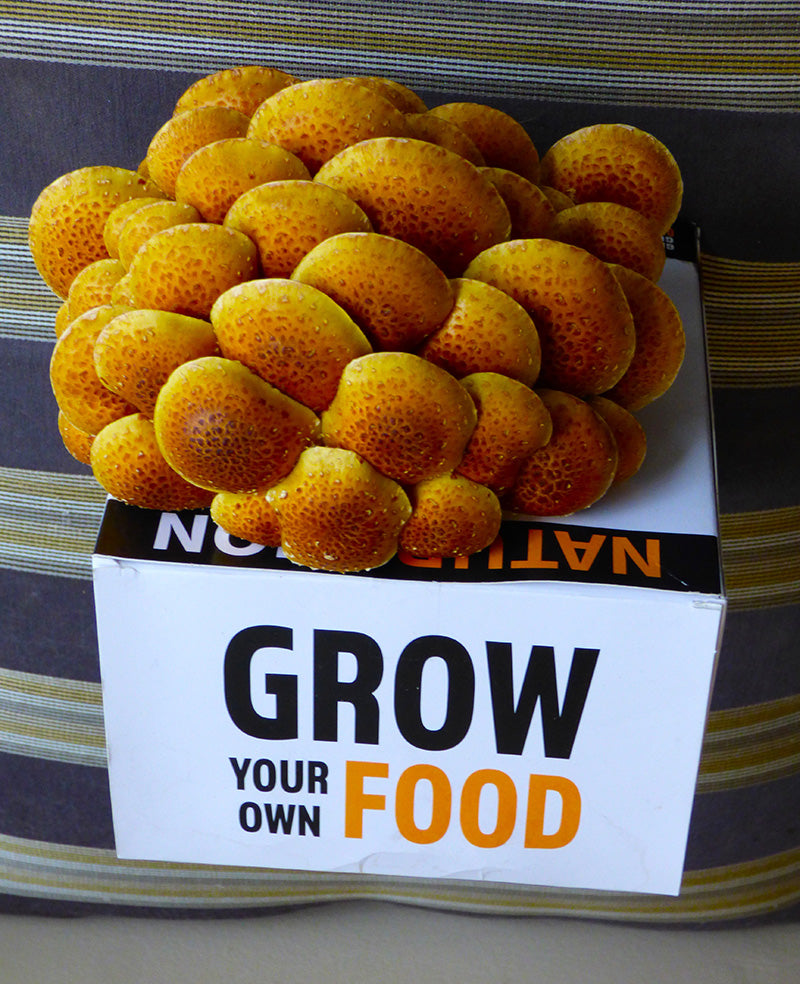
Our mushroom kits are guaranteed to grow. Unlike seeds which can experience a poor germination rate or starter plants, which tend to languish if planted too early, your indoor mushroom kits are guaranteed to grow. Just follow the simple instructional video found here and be prepared to harvest.
Enjoy Peak Freshness
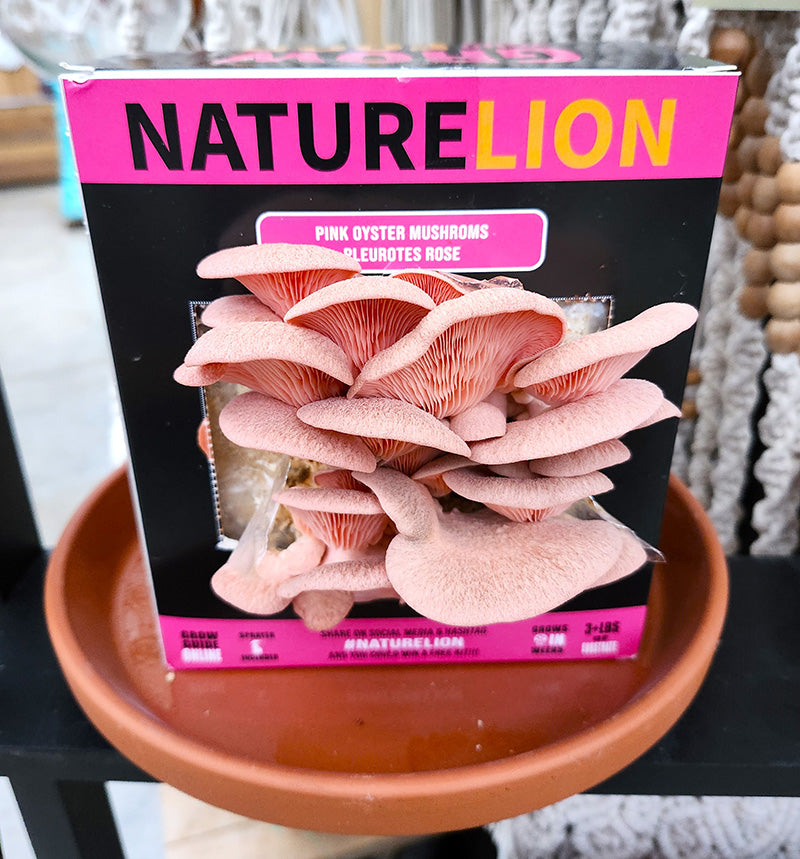
Some mushroom varieties such as Pink Oyster have a very short shelf life and must be used within 5 days of harvest, which is why you never see them for sale at the green grocer. Despite this they are immensely popular with chefs due to their unique pink colour and fleeting seafood flavour.
From Pick to Plate in Minutes
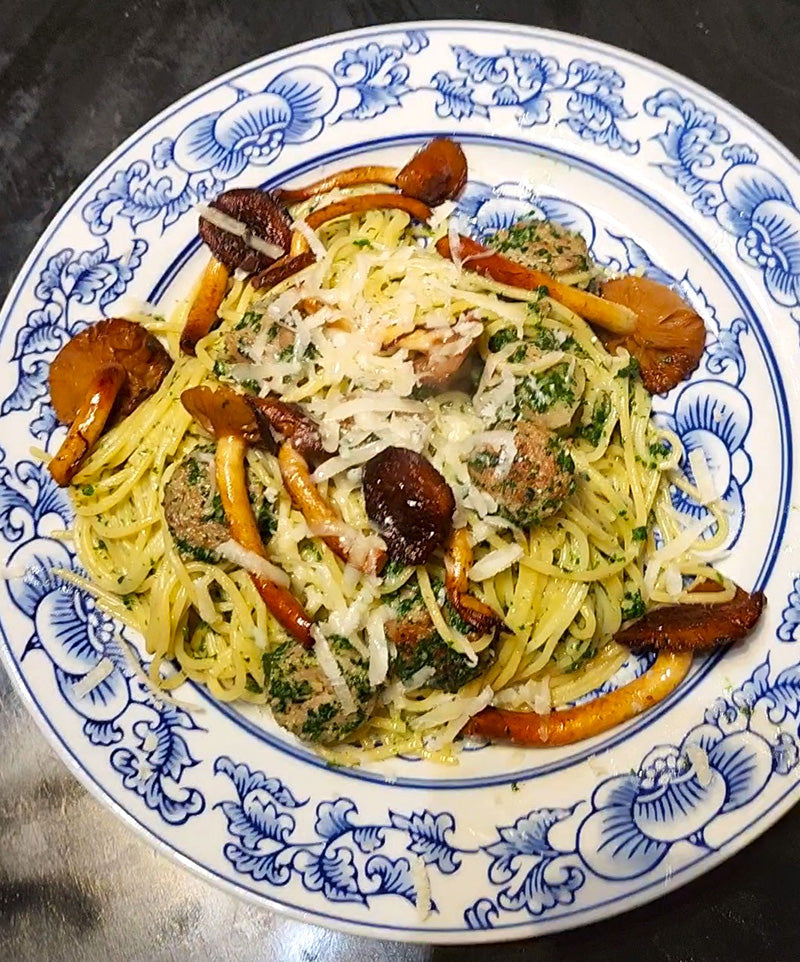
There is nothing that reflects the farm to table movement better than harvesting your own mushrooms and using them right away in a fresh soup or pasta. I recently enjoyed a stinging nettle pesto pasta with fresh Chestnut mushrooms and fennel sausage courtesy of my daughter Rochelle and it was delicious.
You Choose When to Harvest
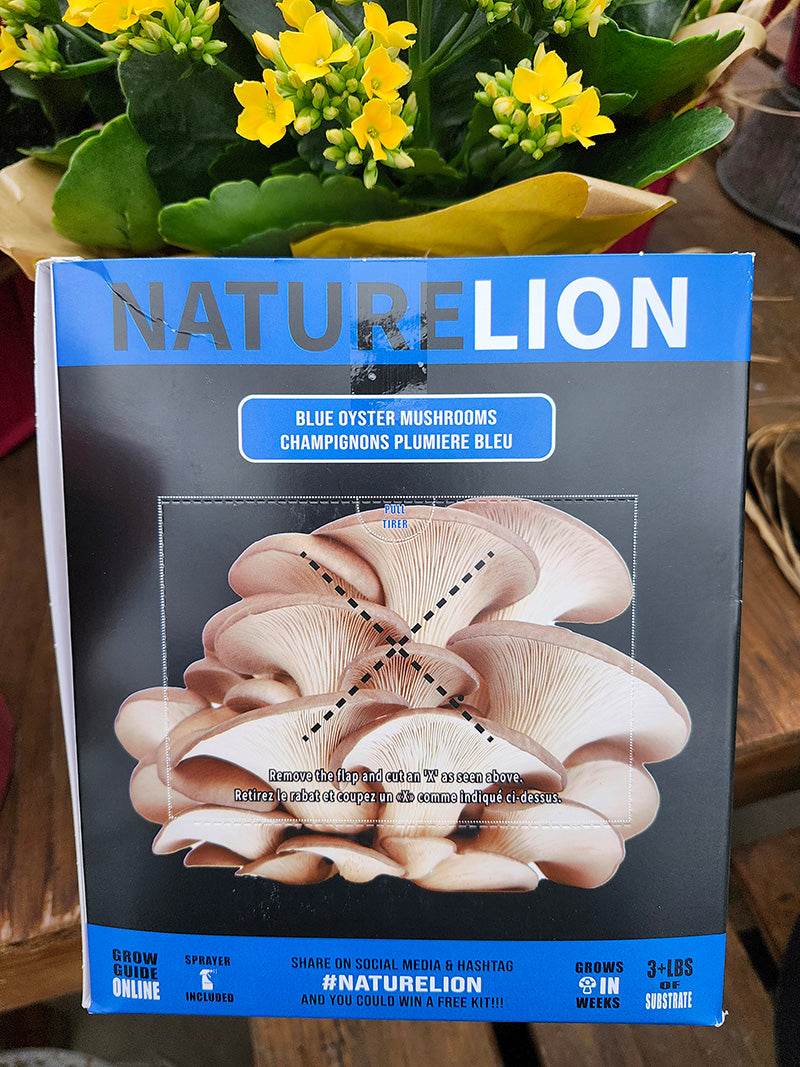
You can keep your kits in hibernation mode in the fridge (for several months) until you are ready to initiate growth, using a 2-4 week time period (depending on species) until they are ready to harvest.


